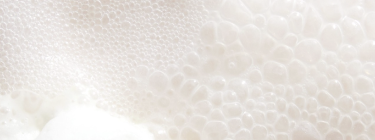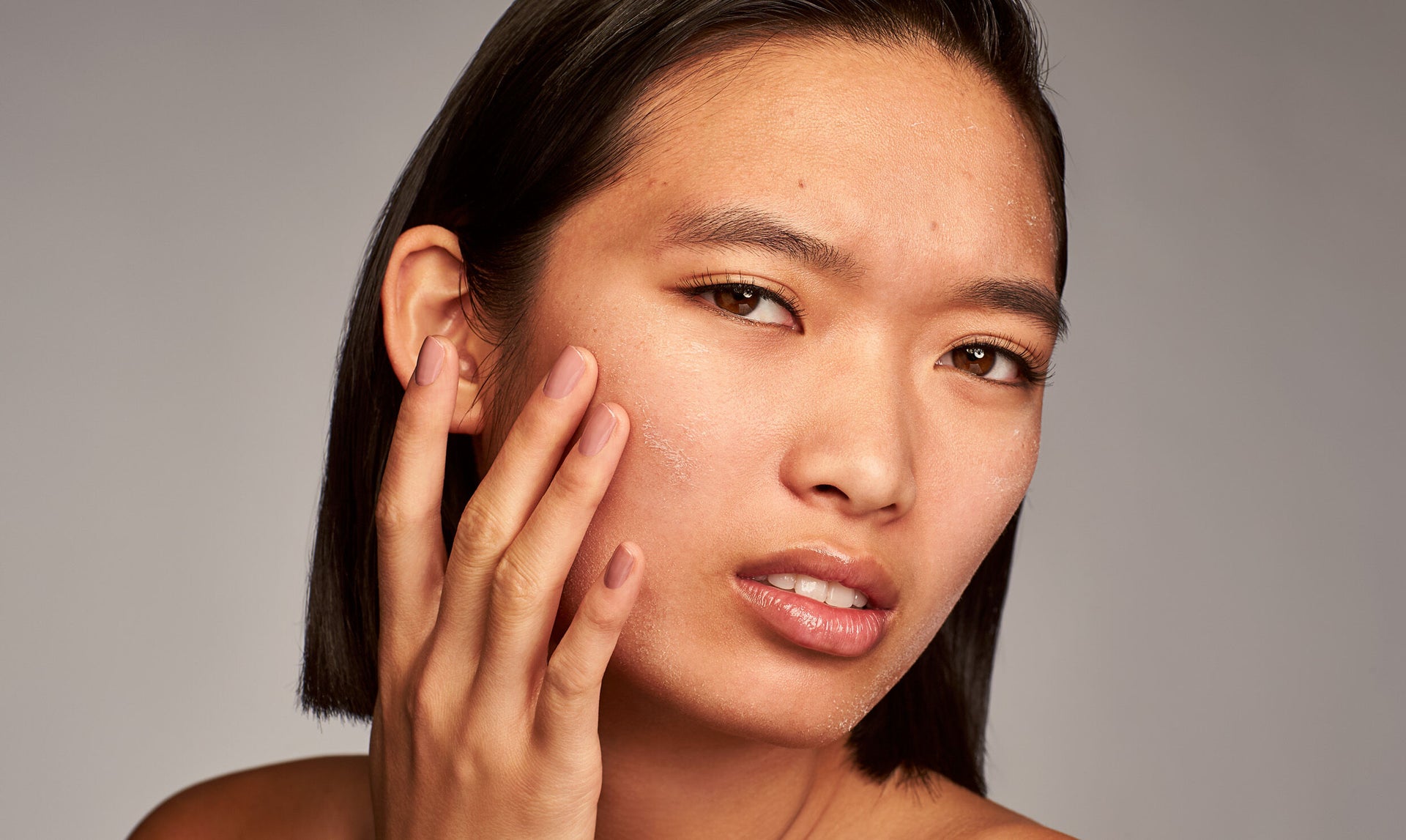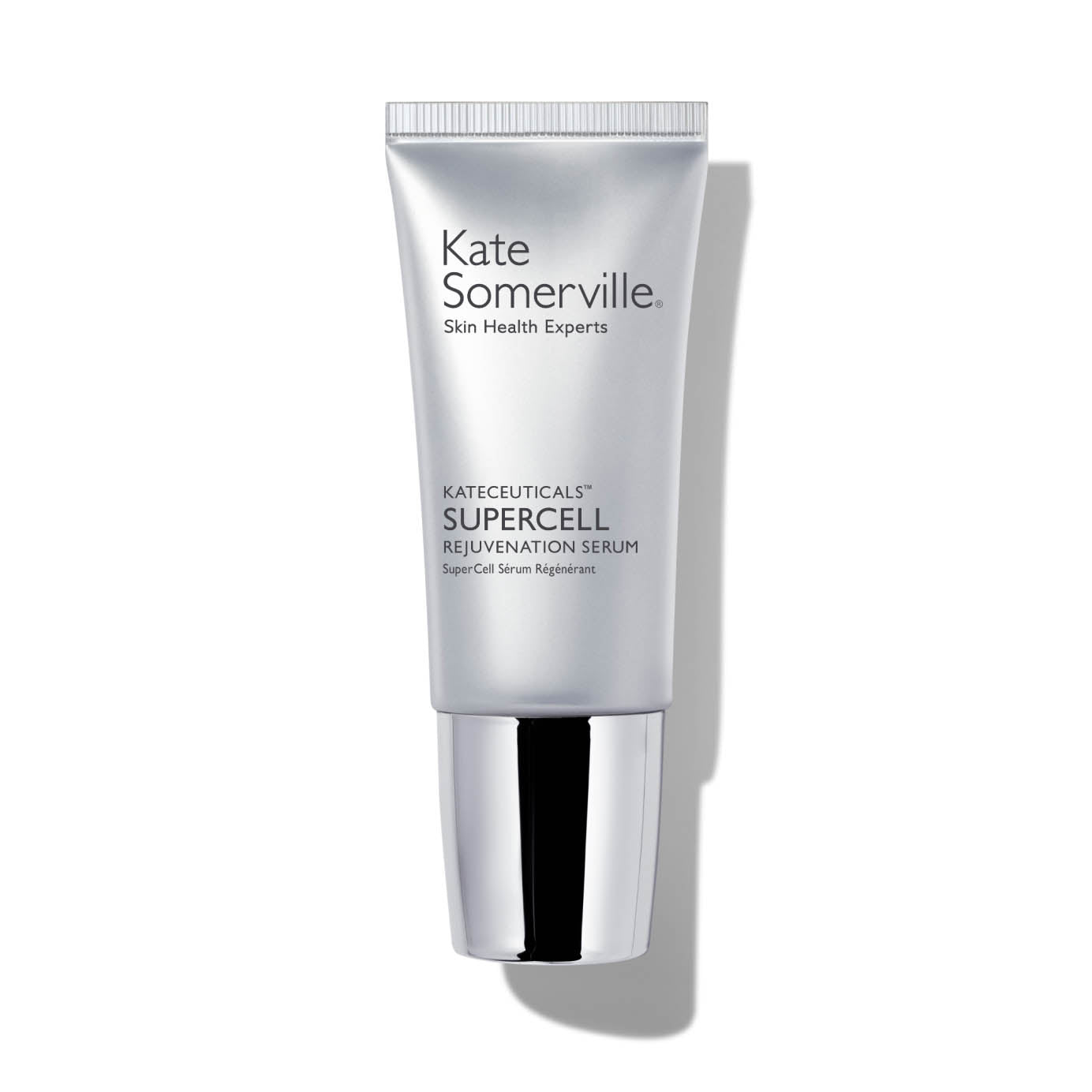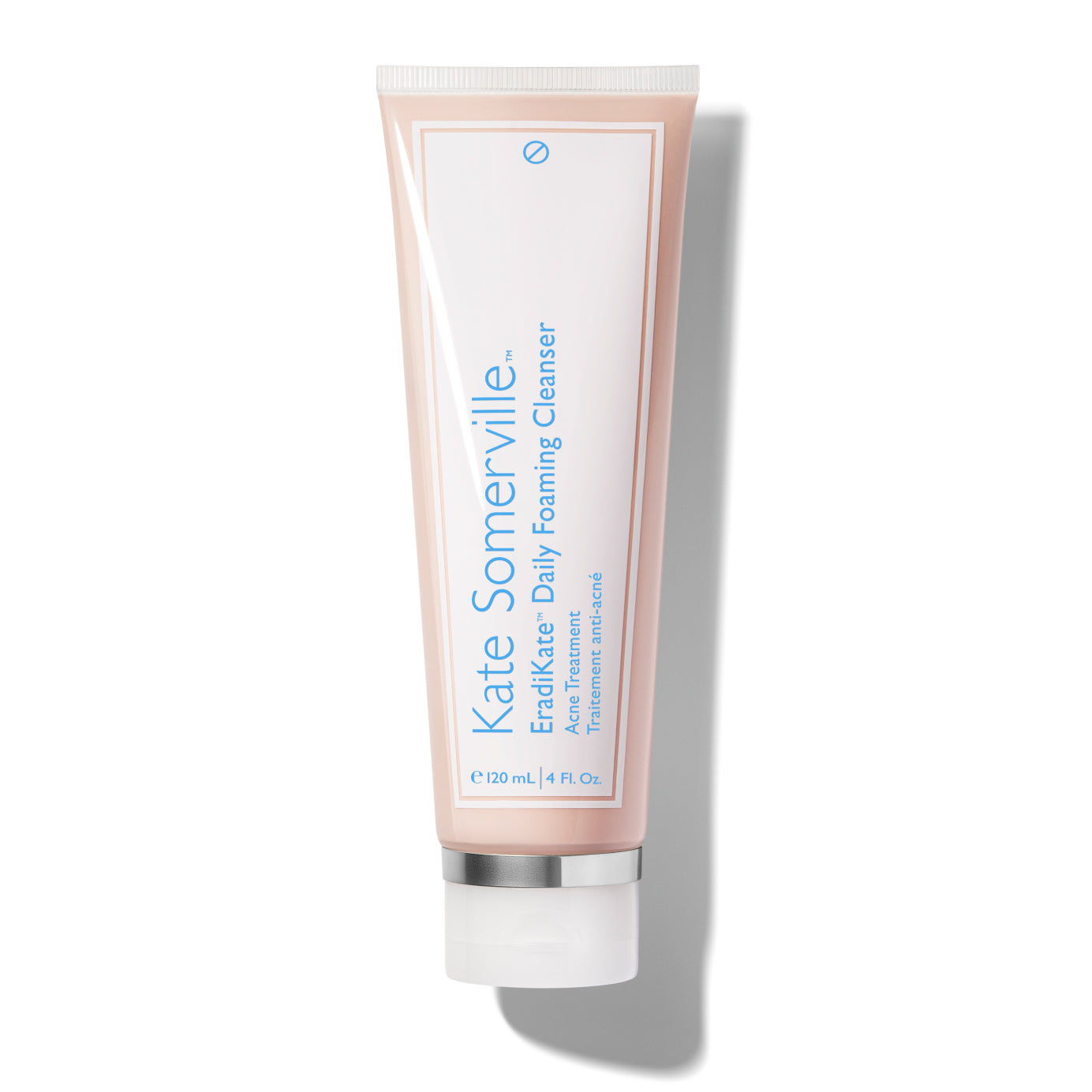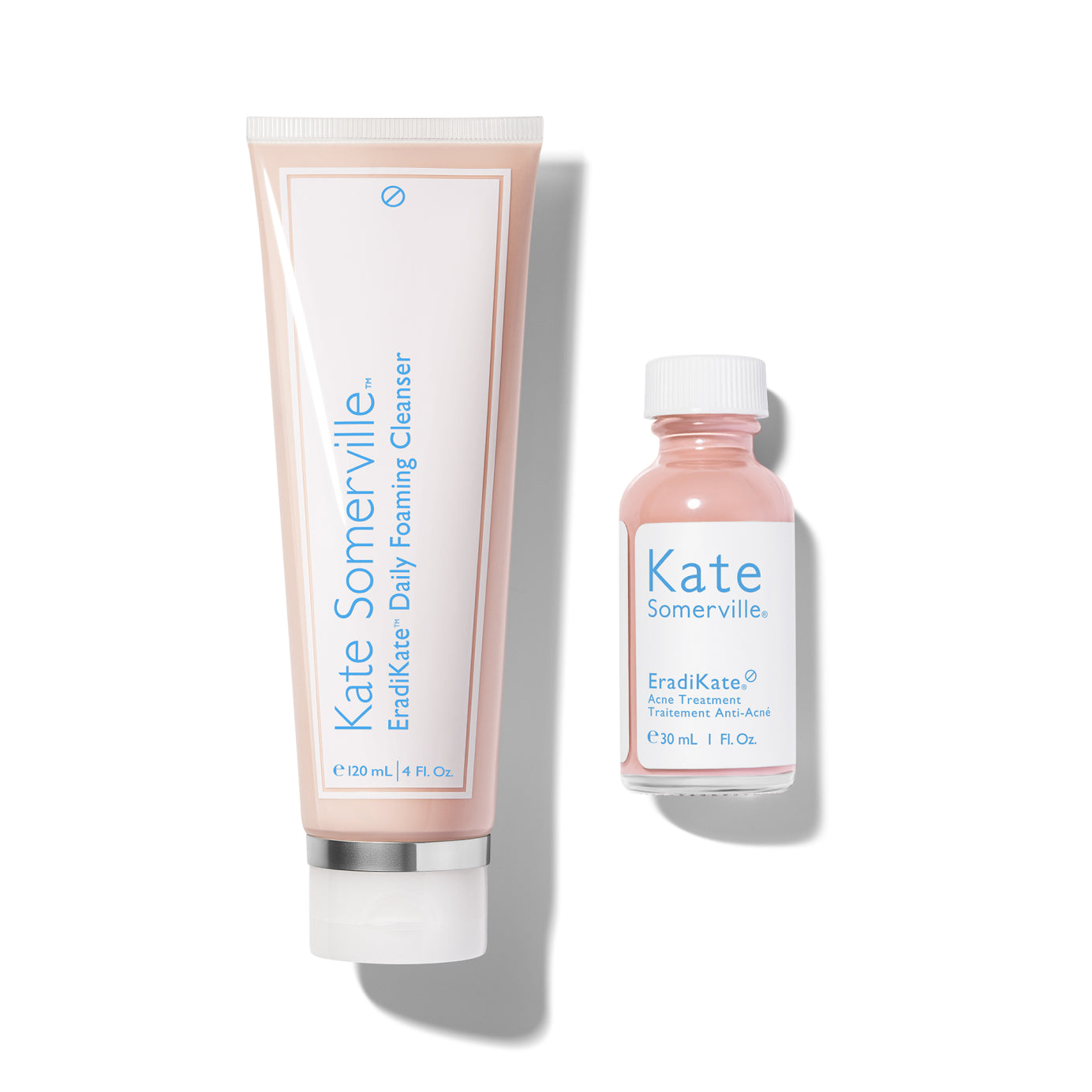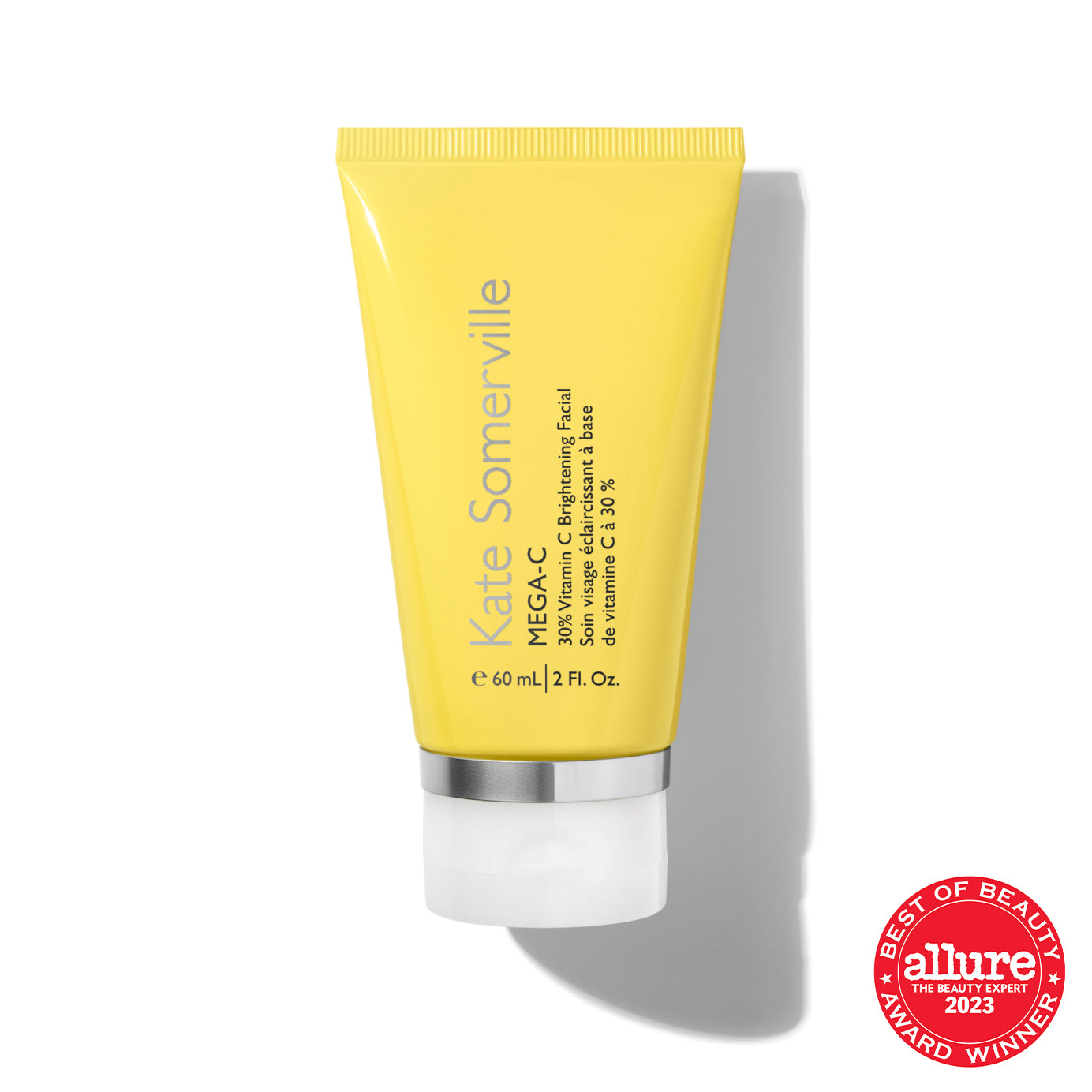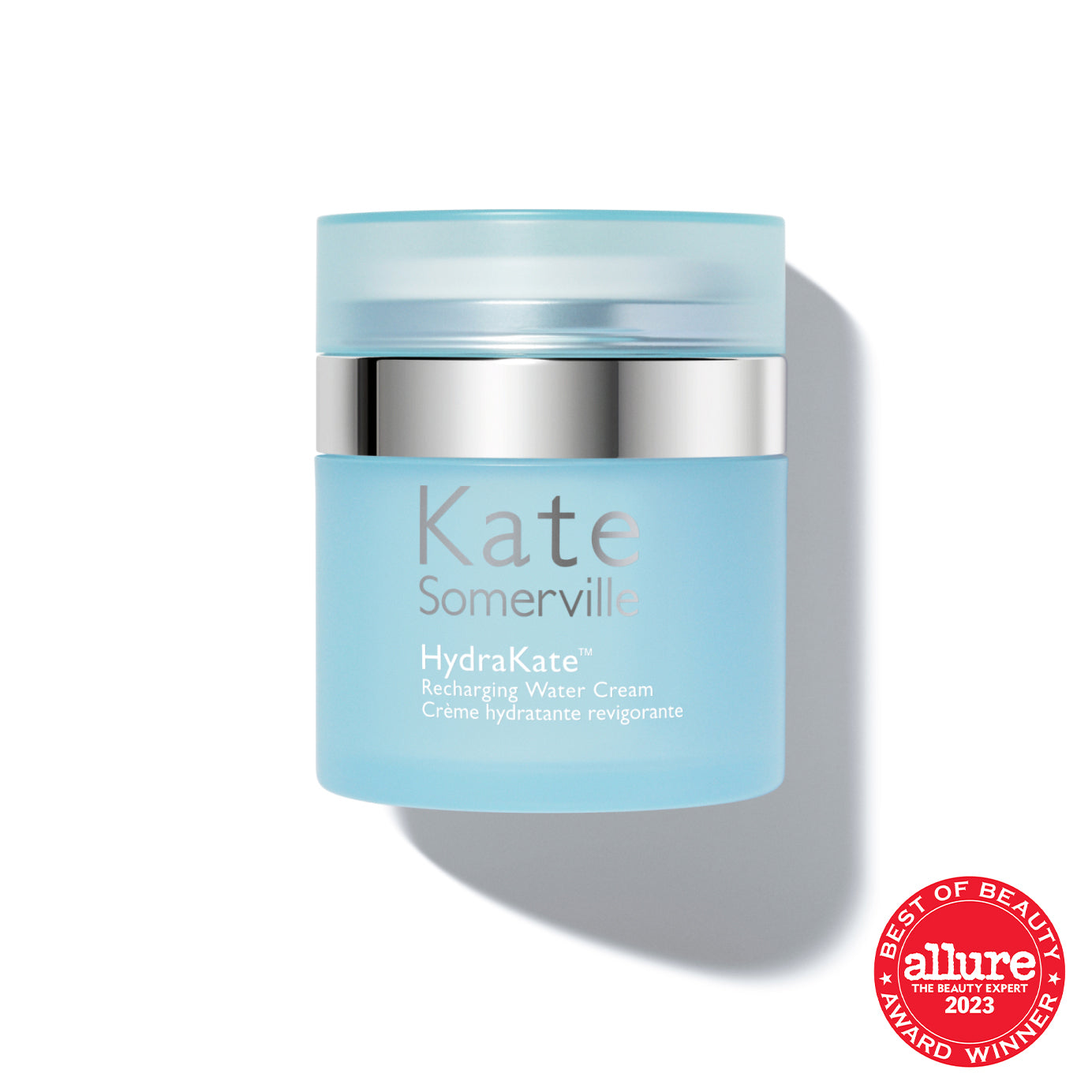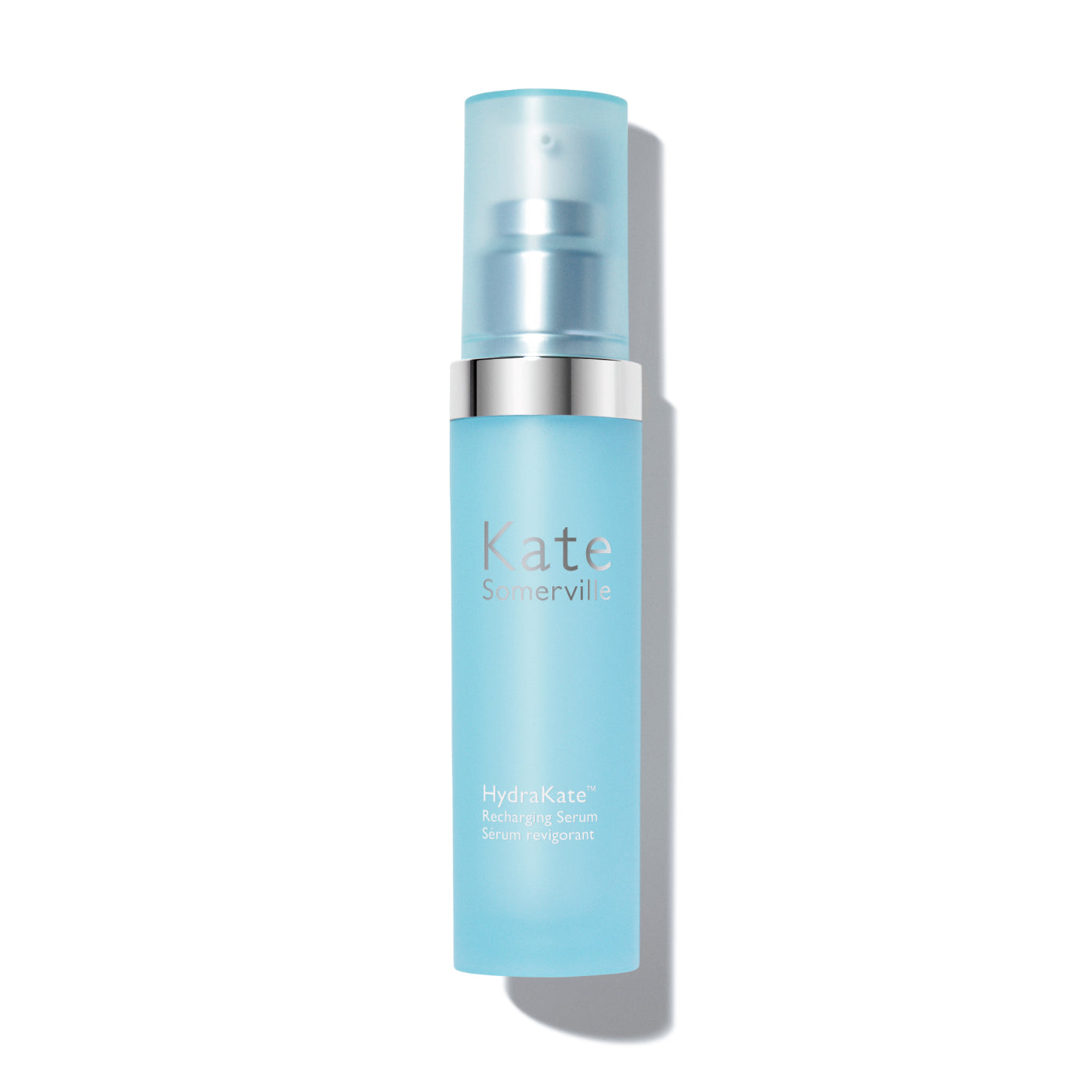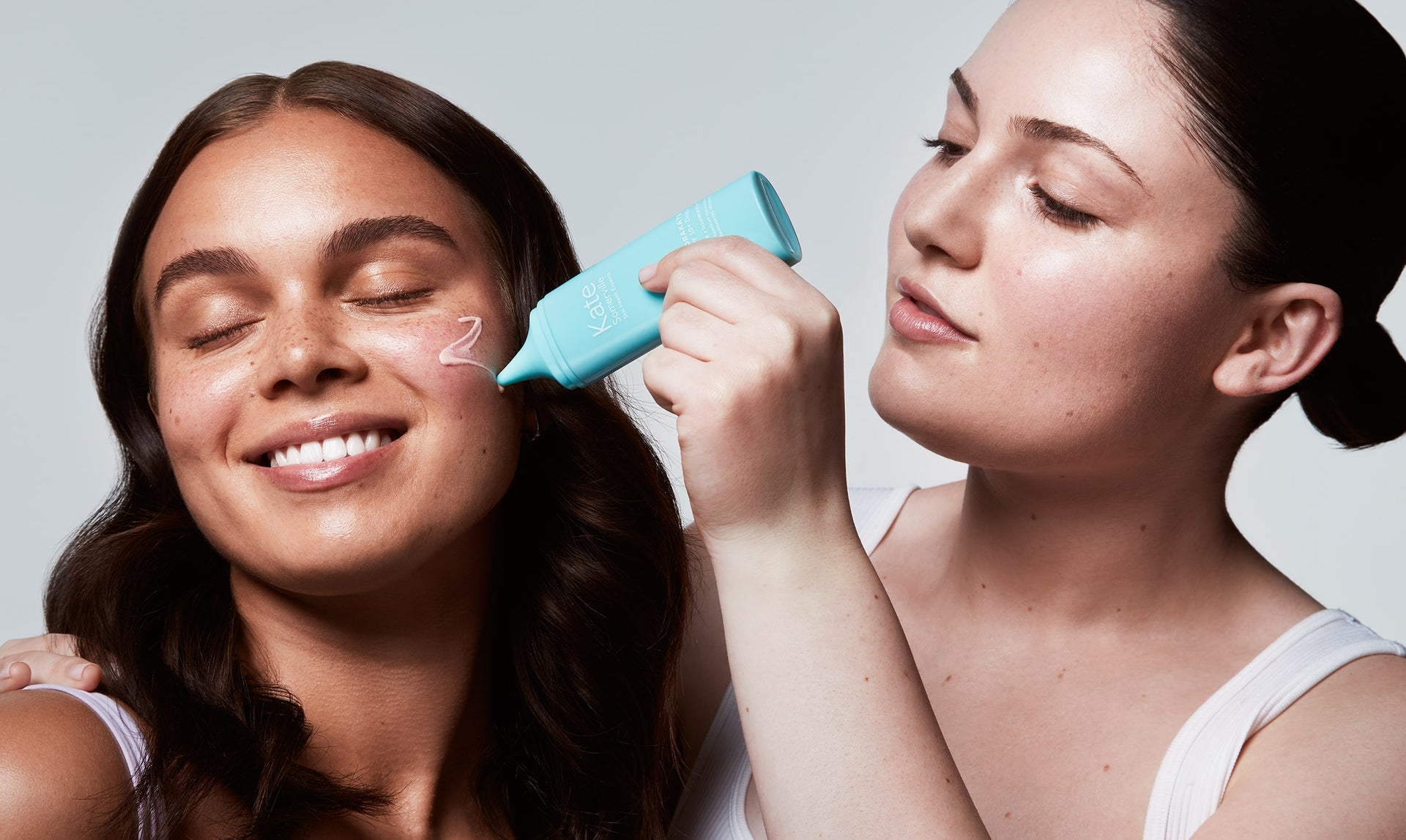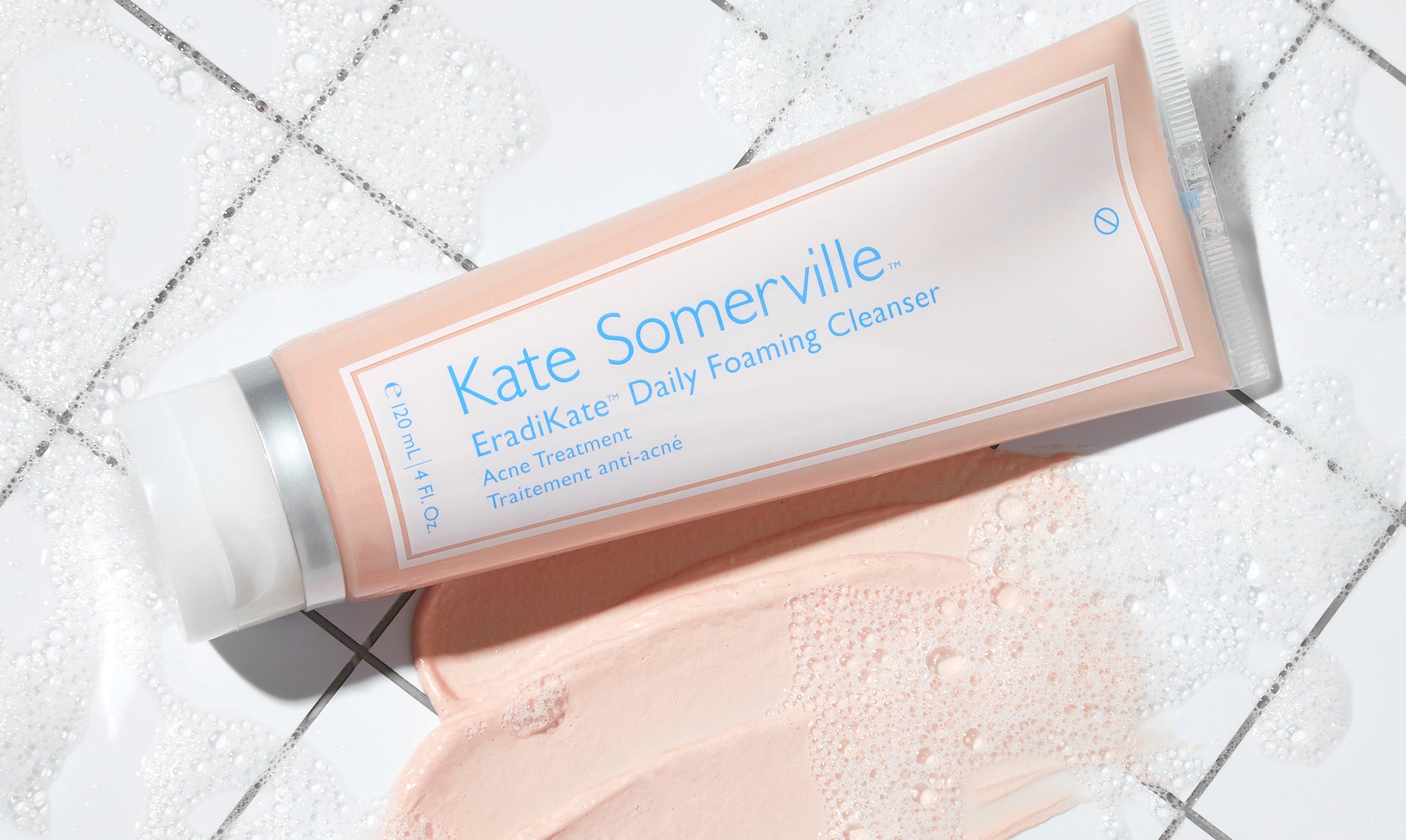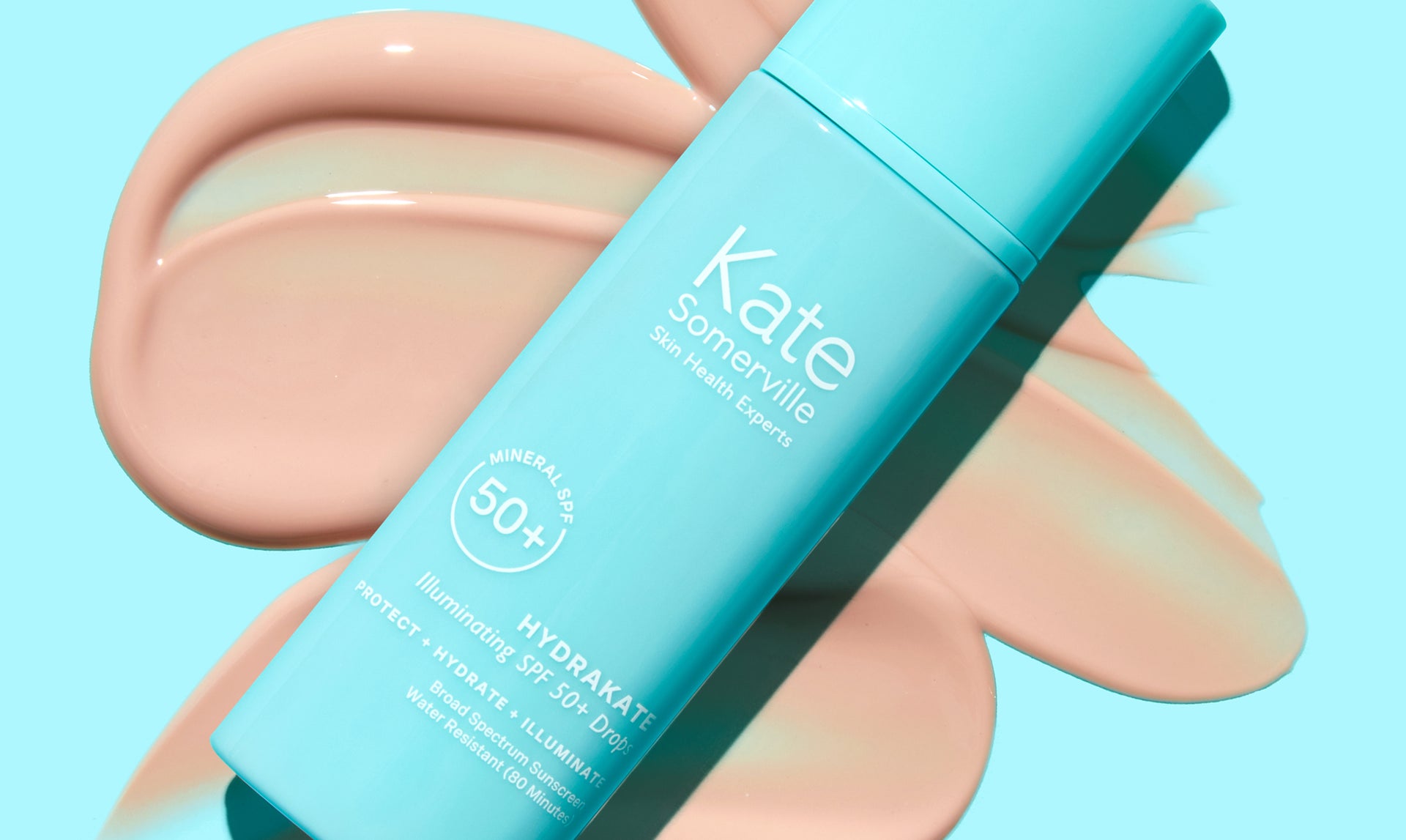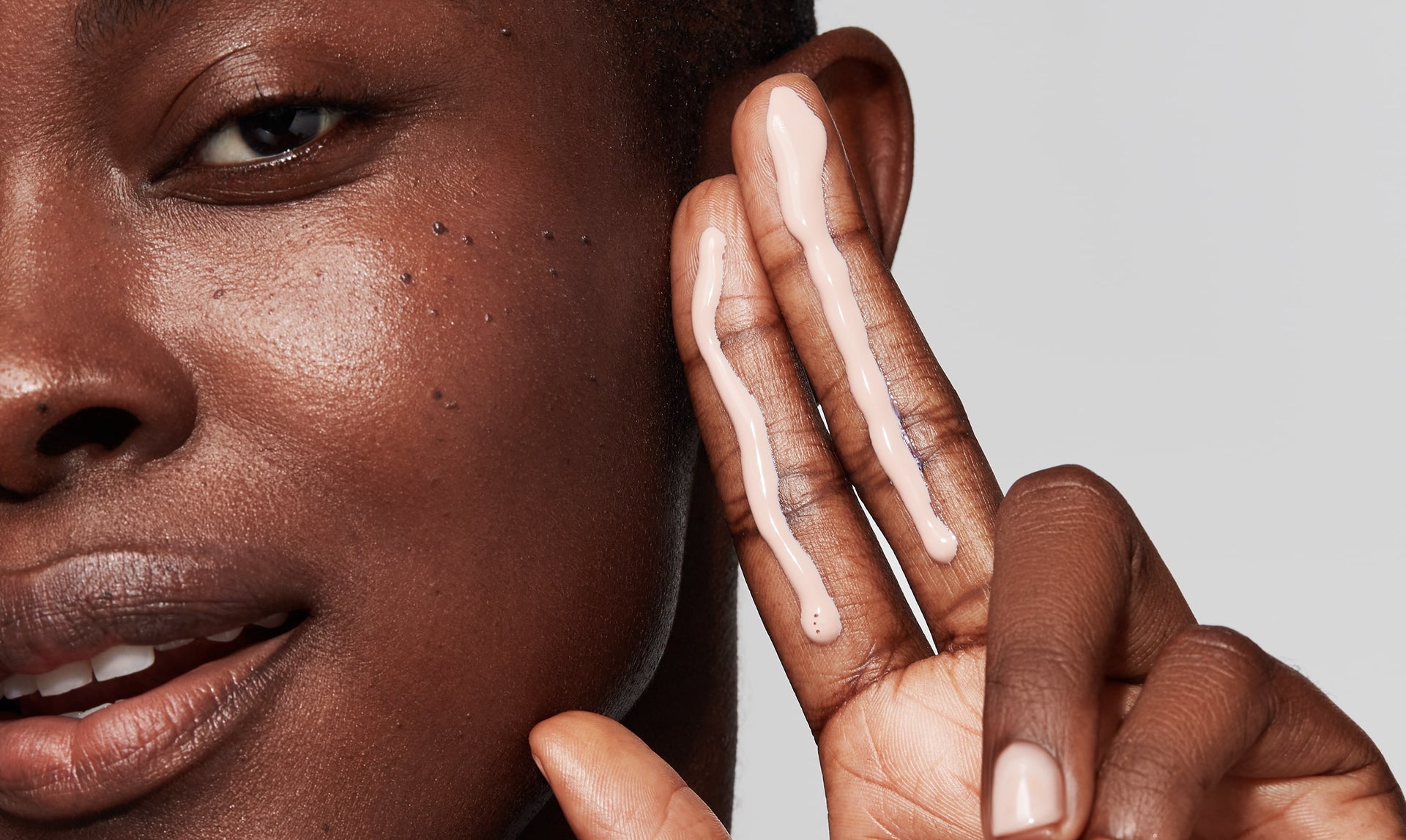Unlike a tasty bottle of cabernet, our skin requires skin care maintenance in order to age like fine wine. It has to face off against harmful UV rays and other external threats in order to keep a firm grip on our natural radiance.
Even if time isn’t on our side, that doesn’t mean we can’t achieve dewy and downright beautiful skin as we grow older.
The key is to pinpoint the common signs of premature aging skin, discover what’s causing it, and make room in our lives—and in our skin care collection—for changes that will treat our aging complexion with care and compassion. Knowing which products to use to correctly correct dehydrated skin vs dry skin is essential as well.
Pour yourself a glass of red and embrace the beauty of aging as our Skin Health Experts dive into three indicators of premature skin aging and ten recommendations to rejuvenate your skin.
#1 Decreased Elasticity
While it might not be obvious each time, you look in the mirror, droopy or slightly sagging skin could jump out at you as you browse through photos of yourself over the years. While we’re bound to lose some elasticity in our skin as the hands of time turn, it can sometimes happen more quickly than we’d like it to, thanks to certain environmental factors such as:
- Smoking
- Pollution
- Prolonged exposure to the sun
- Poor nutrition
As you may already know, exposure to the sun’s UV rays is particularly problematic when dealing with skin that’s not quite as youthful-looking and supple as it ought to be. While effects vary from person to person, studies show that UV radiation can cause sun damage in as little as five or ten minutes. Regardless of your skin type, however, most people will begin to suffer sun damage within an hour of exposure.
We’ll dive into some anti-aging rescue tips later on, but it should come as no surprise that sun protection is at the top of our list.
#2 Wrinkles
Sure, a wrinkle or couple of crow’s feet around your eyes could be your body’s way of reminding you of all the laughs and smiles you’ve enjoyed over the years. But if they’re deeper and more abundant than you’d expect, chances are, premature skin aging has played a hand in their development.
Once again, UV rays can often take a toll on your skin’s connective tissue, leaving you with lines and crevices that you had hoped to postpone for at least another couple of years. Otherwise, wrinkly and dull skin could stem from:
- A higher genetic predisposition
- Decreased oil production in your skin
- Frequent smoking
- Stress
We recommend hydrating and moisturizing your skin with key ingredients that can prevent wrinkles from setting in.
#3 Uneven Skin Tone
Maybe you’ve had a cluster of freckles pop up out of nowhere, or perhaps you’ve noticed a dark spot that only appears to grow darker as each day passes. Whatever the case may be, these subtle hints at an uneven skin tone could be an indication of skin that’s aging prematurely.
The reasons behind this sort of altered pigmentation aren’t all that different from many of the extrinsic factors we mentioned earlier. A handful of shade-free days at the beach without wearing the proper sunscreen, vitamin deficiencies as a result of an unbalanced diet, or environmental pollutants could all be to blame here. In other cases, however, stubborn acne scars may be the primary culprit.
10 Tips to Protect Against Premature Aging
So, you’ve pinpointed the signs and symptoms of premature aging skin—now what? We recommend keeping these ten tips top of mind on your journey toward healthier, more youthful skin:
- Wear protective clothing, such as a wide-brimmed hat, that will shade your face from the sun to prevent premature aging.
- Remain in the shade as much as possible between 10 AM and 4 PM, when the sun’s rays are at their strongest.
- Add the UncompliKated SPF 50 Setting Spray to your skin care tool belt. Designed for people of all skin types, this easy-to-use product doubles as a make-up setting spray and utilizes a handful of trusted, anti-aging ingredients to help your face feel brighter and more protected.
- After you’ve applied your daily sunscreen, don’t forget to reapply throughout the day, approximately every 2 hours.
- Exercise multiple times a week to improve circulation throughout the body and stimulate collagen production.
- Eliminate unhealthy habits such as smoking or drinking to avoid dull, tired-looking skin.
- Drink an adequate amount of water daily to maintain hydration and prevent the loss of elasticity in skin. Being able to tell when your skin needs hydration vs moisture is the key to taking care of your skin barrier.
- Make sure your daily moisturizer includes anti-aging ingredients. Hyaluronic acid, for example, works to regulate your skin’s moisture levels through its ability to bind with water molecules, helping to keep your skin from drying up over the course of the day.
- Be mindful of what’s on your dinner plate. Foods that are high in omega fatty acids (like salmon, mackerel, and other fish) could be particularly helpful for aging skin.
- Since some stress hormones are linked to an increase in skin disorders and premature aging, keep chronic stress at bay by looking after your mental health in whatever way works best for you.
Embrace Skin that Ages Gracefully with Kate Somerville
While you may not be able to press pause on time itself, you can start building a lifestyle and skin care routine that supports your preventive aging skin care routine.
Here at Kate Somerville, our team of Skin Health Experts is dedicated to helping you do precisely that. From moisturizers and sunscreens to an anti-aging collection designed specifically with mature skin in mind, you’ve got everything you need to age with grace—and dazzling skin—at your fingertips.
Sources:
National Library of Medicines. Hyaluronic Acid: A key molecule in skin aging. https://www.ncbi.nlm.nih.gov/pmc/articles/PMC3583886/
National Library of Medicines. Skin Anti-Aging Strategies. https://www.ncbi.nlm.nih.gov/pmc/articles/PMC3583892/
National Institute of Aging. Skin Care and Aging. https://www.nia.nih.gov/health/skin-care-and-aging
National Library of Medicines. How much sun is too much?
https://www.ncbi.nlm.nih.gov/books/NBK321117/
National Library of Medicines. Fighting Against Skin Aging.
https://www.ncbi.nlm.nih.gov/pmc/articles/PMC6047276/
National Library of Medicines. Discovering the link between nutrition and skin aging.
https://www.ncbi.nlm.nih.gov/pmc/articles/PMC3583891/
Mayo Clinic. Wrinkles.
https://www.mayoclinic.org/diseases-conditions/wrinkles/symptoms-causes/syc-20354927#
National Library of Medicines. Physical Exercise as an Effective Antiaging Intervention.
https://www.ncbi.nlm.nih.gov/pmc/articles/PMC5457745/
National Library of Medicines. Brain-Skin Connection: Stress, Inflammation and Skin Aging.
https://www.ncbi.nlm.nih.gov/pmc/articles/PMC4082169/
National Library of Medicines. Cosmetic and Therapeutic Applications of Fish Oil’s Fatty Acids on the Skin.
